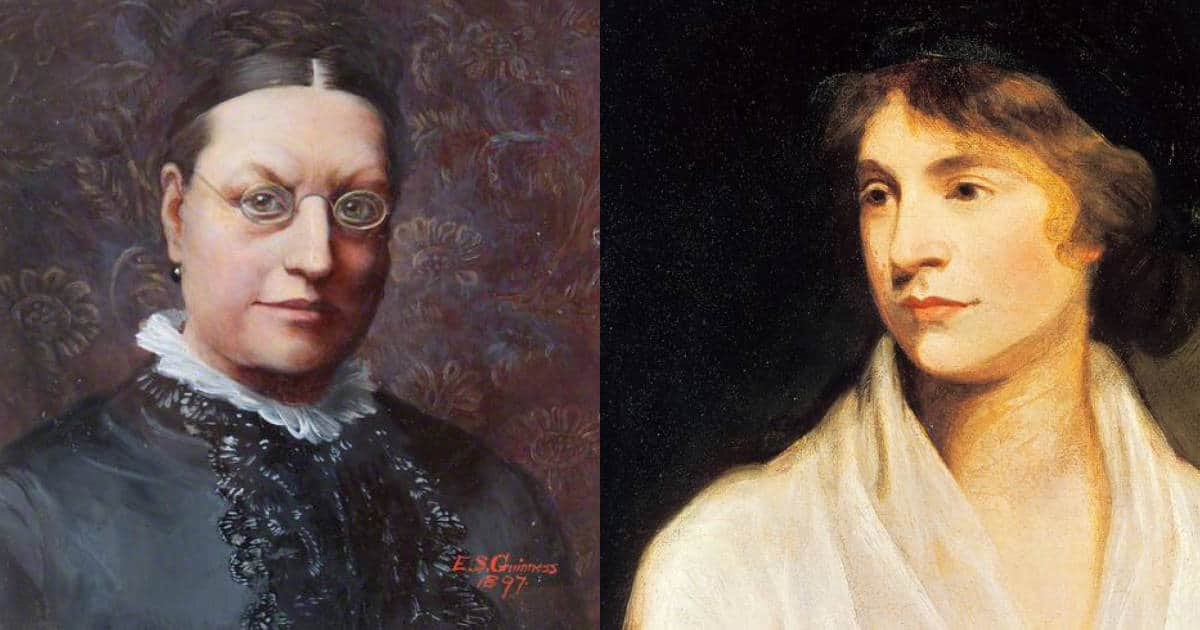These days, many leading feminists are household names: A-list musicians, Hollywood stars and literary heavyweights all throw themselves behind equality. But the earliest feminists were often unrecognised in their own lifetimes. Worse still, they were sometimes attacked for their progressive views, dismissed as mad or ‘unfeminine’. But though they must have felt like they were fighting an impossible battle, they carried on, and we have them to thank for the progress that has been made over the decades and centuries.
In some cases, the earlies feminists were driven by reason. In other cases, their religious faith and belief that God made all of us equal was the foundation for their feminist principles. And then there were the campaigners and activists for whom feminism was just one part of a larger fight for a fairer society. So, here we have 18 of the most notable feminists from history, all of them worthy of our recognition and thanks:

1. Laura Cereta left a convent to become a pioneering figure for female emancipation years before the Enlightenment
Italy during the Renaissance period was full of learned men. But the period stretching from the 14th through to the 17th century also produced some notable women. And none was arguably more notable than Laura Cereta, a true woman of letters. At a time when girls and women were actively discouraged from learning – indeed, many saw scholarly pursuits as being ‘unfeminine’ – Cereta broke the mould. What’s more, she was also highly outspoken and her writings have been credited with helping build the foundations of feminist movement that emerged with the Enlightenment.
Born into nobility in the city of Brescia in 1469, Cereta spent her early years in a convent. Here, she gained a rudimentary education, as well as being taught basic ‘womanly’ skills like embroidery. When she retuned home, however, she was not content to follow her mother’s example of feminism. Instead, she was determined to carry on in her learning. With her father’s help and blessing, she did just this, excelling in math, astrology and the physical sciences. Even marriage at the age of 15 didn’t stop Cereta in her scholarly pursuits – wisely she wed a Venetian merchant who supported her endeavors.
Tragically, the marriage lasted less than two years. Cereta was a widow before the age of 20. She consoled herself by throwing herself into intellectual life. She was a regular at salon debates in the cities of Brescia and Chiari. She also became a prolific writer. She wrote essays and letters focusing on women’s rights, including marriage and women in education. She was also a fierce critic of the scientists and historians of the day, working tirelessly to ensure women were given due credit. According to some accounts, Cereta even held a university chair in philosophy in Padua around the time she started publishing her essays in volume form.
Cereta died in 1499 at the age of just 30. Due to her social status and the reputation she had earned as a scholar, her funeral was well-attended. Her writings were also given a new lease of life and were widely discussed for years. Though they fell out of favor, Cereta once again became a respected voice during the Enlightenment, with several notable feminists, not least Mary Wollstencraft, citing her as a key influence. It was only in 1997, however, that Cereta’s essays on women’s rights and their place in history and society were finally translated into English.

